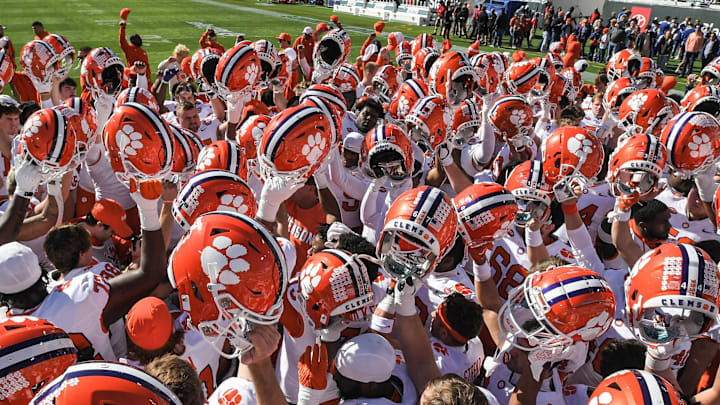Clemson Football has established itself as the counter-culture alternative to most of its peer programs in Power football conferences.
The Tigers do use NIL. They recently revamped their NIL collectives into a single collective for better management and fundraising objectives. They just don't use NIL like other schools, specifically as an enticement to commit to the program.
For a long time, I assumed that Clemson avoided using NIL as an enticement (ie buying recruits) because they were concerned the NCAA could retroactively punish programs that broke rules against enticements. This wasn’t an assumption based on fear. Rather the opposite: the NCAA has acted retroactively several times.
The judge who recently issued an injunction against the NCAA’s enforcement of NIL restrictions (including enticements) also included an injunction prohibiting the NCAA from punishing schools, collectives, boosters, and players who freely transacted NIL deals that technically violated NCAA rules should the court case brought by the state of Tennessee be decided in the NCAA’s favor.
The insiders tell us the real reason the Tigers prefer to not make NIL the point of recruitment isn’t because of a concern about sanctions. They prefer to recruit players who aren’t going to make their decisions based on NIL.
Clemson Football wants players who aren’t going to be transactional. They don’t want players who will simply leave as soon as another school offers them more NIL money. They want players who are making their decision about where to play based on something other than NIL.
This strategy has yielded a better player retention rate than most of Clemson’s peer programs. Fewer players exit Clemson for the portal on average than most Power programs. In this regard, the strategy is working.
Where we don’t have proof of concept is on the field and the scoreboard. Clemson has been competitive in the NIL era, but they haven’t been improving the bottom-line results. With the lone exception of 2022, the results have been moving in the wrong direction since the 2018 National Championship victory over Alabama. They have been small incremental steps, but after five seasons they have added up.
2024 is likely to be a pivotal season for the Tigers. Most people nationally now consider the program to be a tier or two below the national championship contenders.
Head coach Dabo Swinney hasn’t been sitting on his hands. He has made multiple changes to his staff to bring in new philosophies and more experience. There will be a point, however, when there is nothing left to tinker with on the staff.
Swinney said the Tigers would use the transfer portal this offseason, and they did recruit multiple offensive linemen. They missed all of them because NIL is a crucial component of portal recruiting.
Clemson has fallen in several of the way-too-early rankings because the programs around them added talent from the portal while the Tigers were stagnant.
If the Tigers don’t show improvement in 2024, it won’t just be national observers who will be critical of the program’s reluctance to embrace NIL. The calls from within the fanbase for Clemson to be on an even playing field with their peers will become quite loud.
If the rules against NIL are thrown out, as the injunction indicates will happen, does it make sense for Clemson to continue its counter-culture approach?
My answer is dependent on the results of the 2024 season. I understand the logic behind believing that Clemson’s approach with NIL can give them an advantage on the field. If we see improvement this season - a step forward - then I favor continuing the approach.
If we don’t see that improvement - if the program stagnates or regresses in 2024, then it’s time for Clemson to modernize its approach with NIL.
